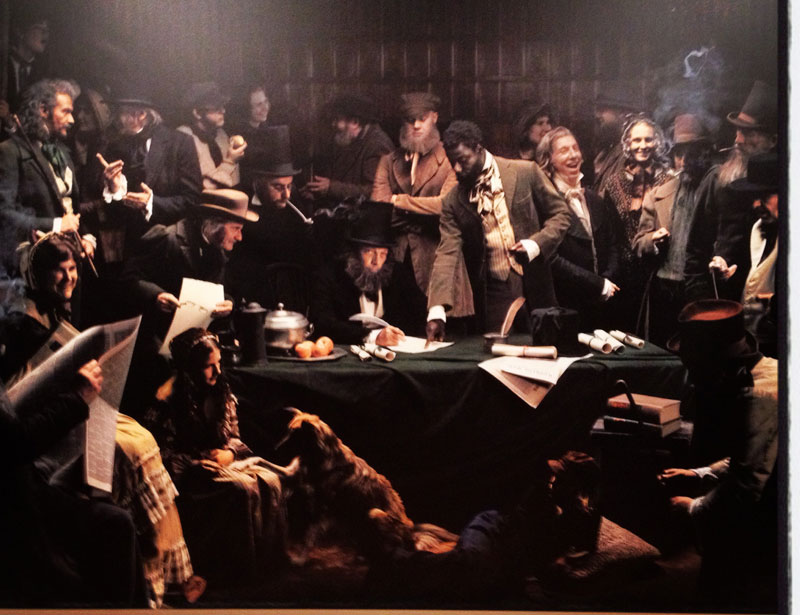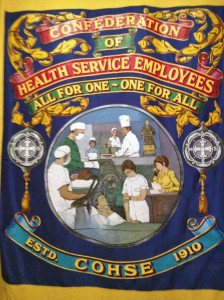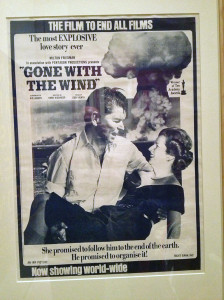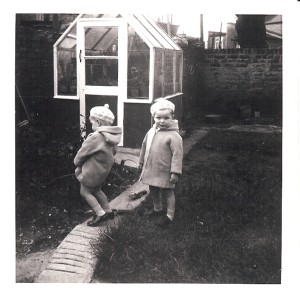My Sunday evening BA flight from Stockholm to Heathrow was not delayed for once. However what one gains on the swings one loses on the roundabouts as it took an hour of waiting in line to clear immigration. I often wonder if it’s quicker to join the e-passport line or take your chances with everyone else in the ‘long’ queue. I’ve worked it out that on average it’s no quicker either way whether you wait to be ‘warmly greeted’ back to the UK by a ‘friendly’ customs official or to have your mug-shot taken in a green and red illuminated photo booth. Whatever queue you stand in the process is much the same and the wait equally tedious.
The tube from Heathrow to the station near my apartment takes about 30 minutes and is probably the best value for money of any public transport system in the UK. It is a tenth of the cost of getting to Arlanda airport from Stockholm. Some international flights are cheaper than a ticket on the Arlanda Express. Perhaps it should be renamed the Arlanda Expense. As I peered out the rain splattered tube window into darkness it occurred to me that this did not feel like a usual homecoming event but more like an a weary commute. Perhaps that’s exactly what it has become. Having said that I do miss England and I particularly miss London when I’m away in Stockholm. It is the place of my birth and infant nurture and I suppose London is coded into my DNA. My family history, or the little I know of it, extends back more than 200 years into the gloom of London’s East End.
I am back for a series of meetings at ‘magic circle’ law firms in the City, each trying to outdo the other in their mostly new glass bastions of intellectual knowledge and apparent calm. Meanwhile many of their young go-getters are working well into the night most nights and suffering from some sort of inner crisis whether trying to hold down a relationship, find the time rather than the means to pay the bills or just cope. Much has been made of the plight of junior doctors but many clever young people are putting their lives on hold in pursuit of a coveted partnership in one of the big law firms or accountancy firms. The same applies to investment bankers but perhaps I don’t have any sense of sympathy for them. This is far from the City that I knew when I started working in Lloyd’s of London as an aviation broker at the age of 18. I would never have the right qualifications to do the same job now. I often wonder if a tea lady in JP Morgan for example, that is if tea ladies still exist, are required to have a doctorate in infusion before HR will invite them to interview. But then in mid 70s when I started in the City there were still gents turning up to work wearing bowler hats and carrying Fox framed umbrellas. There were also bomb sites still left untouched since WWII and grimy, dusty sparrows hopping around your feet. London has now all become a bit too clean, clinical and sterile. It was surely never meant to be like this, much to the mutual demise of the poor house sparrows and the ‘cockney sparrows’ that used to ply all sorts of trades in the City.
Today has been a day of new and revealing facts and figures. I learned from the Swedish press that many British people do not realize that the UK is a member of the EU. Also that the Bill and Mellissa Gates Foundation gives almost half as much as the US Government does to immunization programmes around the world and that two thirds of people with tattoos regret having them. My grandfather had tattoos, Britannia on one arm and a cameo of Queen Victoria on the other. He was a sailor and a member of the Maritime Royal Artillery in the Merchant Navy throughout WWII. His job it was to take pot shots at the Luftwaffe. As a child I was mostly interested in how many enemy aircraft he’d shot down. His ship was bombed in Bari harbour in Italy and he was blown across the deck. The ship was carrying high octane aviation fuel and the bomb that just missed him passed straight through his ship without detonating. Many others were not so lucky. For days after the attack on the port of Bari, often referred to as the ‘Pearl Harbour’ of Europe, oil sodden dead were hauled from the harbour and those bodies unknowingly resulted in more casualties. A US ship that took a direct hit was carrying mustard gas which was absorbed by the oily water and contaminated the corpses. Uninjured survivors and Italian civilians of the surprise raid by 150 Junkers bombers were blinded or died from the effects of mustard gas. A fact that was covered up by Churchill and the British Government for years. My grandfather never really spoke much about it but I know he was ‘injured’. Was it by that horrendous gas I wonder? He was a man who earned his tattoos. He told me that under no event should I ever be tattooed, not that I’ve ever been inclined to do so. So many Swedes are so plastered with them that if you were to stand them in the fabric department of IKEA I’m sure they’d be perfectly camouflaged. Maybe my young Anglo-Swedish son will take his great grandfather’s advice too. Wise words from a British hero that will resonate in my mind during this forthcoming week of Remembrance.
Barry Moss (MI’94) former Chairman of the British Chapter since 1998 and has also served two terms as a Board Director of the Explorers Club in New York. He is a veteran of Operation Drake, Operation Raleigh and the reed boat Kota Mama expeditions in South America. He is a Fellow of the Royal Geographical Society, a Trustee and Director of the Scientific Exploration Society and a Director of Youth Exploring Science. He lives in Sweden most of the time.






